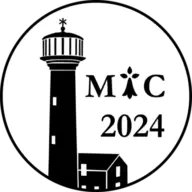15th Metaheuristics International Conference

Abstract
MIC'2024 is focus on presentations that cover different aspects of metaheuristic research such as new algorithmic developments, high-impact and original applications, new research challenges, theoretical developments, implementation issues, and in-depth experimental studies. MIC'2024 strives a high-quality program that will be completed by a number of invited talks, tutorials, workshops and special sessions.
MIC'2024 is focus on presentations that cover different aspects of metaheuristic research such as new algorithmic developments, high-impact and original applications, new research challenges, theoretical developments, implementation issues, and in-depth experimental studies. MIC'2024 strives a high-quality program that will be completed by a number of invited talks, tutorials, workshops and special sessions.
MIC'2024 solicits contributions dealing with any aspect of metaheuristics. Typical, but not exclusive, topics of interest are:
- Metaheuristic techniques such as tabu search, simulated annealing, iterated local search, variable neighborhood search, memory-based optimization, dynamic local search, evolutionary algorithms, memetic algorithms, ant colony optimization, variable neighborhood search, particle swarm optimization, scatter search, path relinking, etc.
- Techniques that enhance the usability and increase the potential of metaheuristic algorithms such as reactive search mechanisms for self-tuning, offline metaheuristic algorithm configuration techniques, algorithm portfolios, parallelization of metaheuristic algorithms, etc.
- Empirical and theoretical research in metaheuristics including large-scale experimental analyses, algorithm comparisons, new experimental methodologies, engineering methodologies for metaheuristic algorithms, search space analysis, theoretical insights into properties of metaheuristic algorithms, etc.
- High-impact applications of metaheuristics in fields such as bioinformatics, electrical and mechanical engineering, telecommunications, sustainability, business, scheduling and timetabling. Particularly welcome are innovative applications of metaheuristic algorithms that have a potential of pushing research frontiers.
- Contributions on the combination of metaheuristic techniques with those from other areas, such as integer programming, constraint programming, machine learning, etc.
- Contributions on the use of metaheuristic techniques in machine learning and deep learning for finetuning and neural architecture search, etc.
- Challenging applications areas such as continuous, mixed discrete-continuous, multi-objective, stochastic, or dynamic problems.